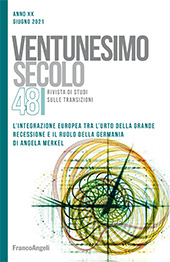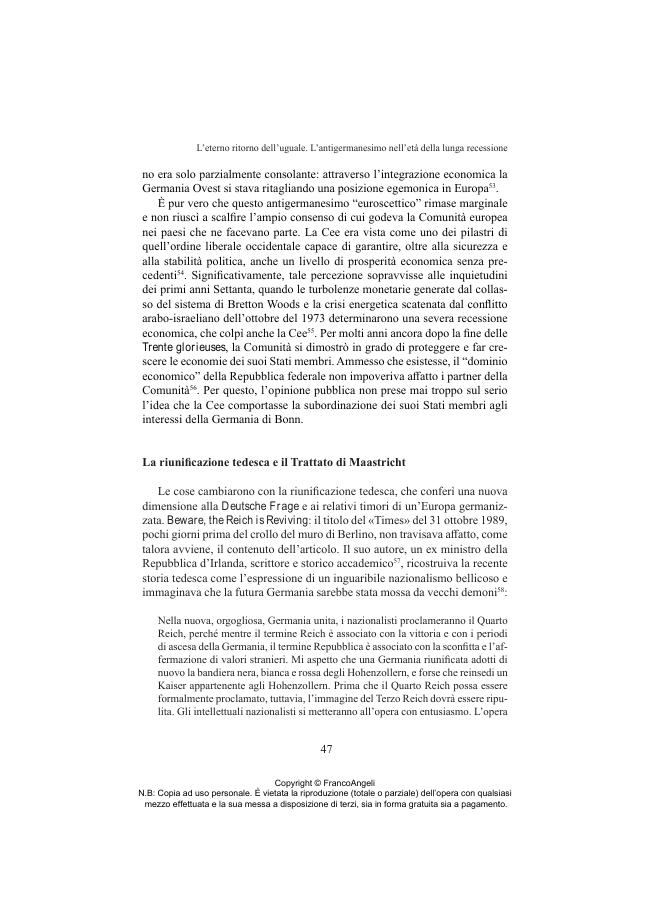L'eterno ritorno dell'uguale : l'antigermanesimo nell'età della lunga recessione
36-58 p.
Since the Eurozone crisis and the following standoff of the process of European integration, criticism against Germany has become a fl ag of the Eurosceptic political parties and movements. A poisoned narrative tends to present the Federal republic as a power struggling for hegemony in the continent. Indeed, antiGerman sentiments have a long history and this essay traces their origins in France, Britain and Italy. When the fi rst European Communities came into being in the 1950s, antiGermanism was immediately used by antiEuropean circles. From this point of view, there is a clear continuity between today's Eurosceptics and the early antiEuropeanists. The European communities were fi rst seen as an instrument to enable the resurgence of German militarism, and then as a means to establish the economic hegemony of the Federal Republic in Europe.
These narratives despite the passage of time are based on clichés and stereotypes that seem unchanging, portraying Germany as a country with an irrepressible tendency to dominate others. This prompts us to think of Euroscepticism not so much as the container of antiGerman prejudice, but rather as the contemporary vehicle of a more allusive sentiment because it seems to fi nd justifi cation in concrete experiences of domination pursued and, in some periods and places, actually exercised. But it is precisely a careful historical analysis that reveals how antiGermanism is grounded in misleading arguments and assessments. [Publisher's text].
-
Artículos del mismo número (disponibles individualmente)
-
Información
Código DOI: 10.3280/XXI2021-048003
ISSN: 1594-3755
KEYWORDS
- Italy, France, Great Britain, AntiGermanism, Euroscepticism, European Union, Economic Recession



